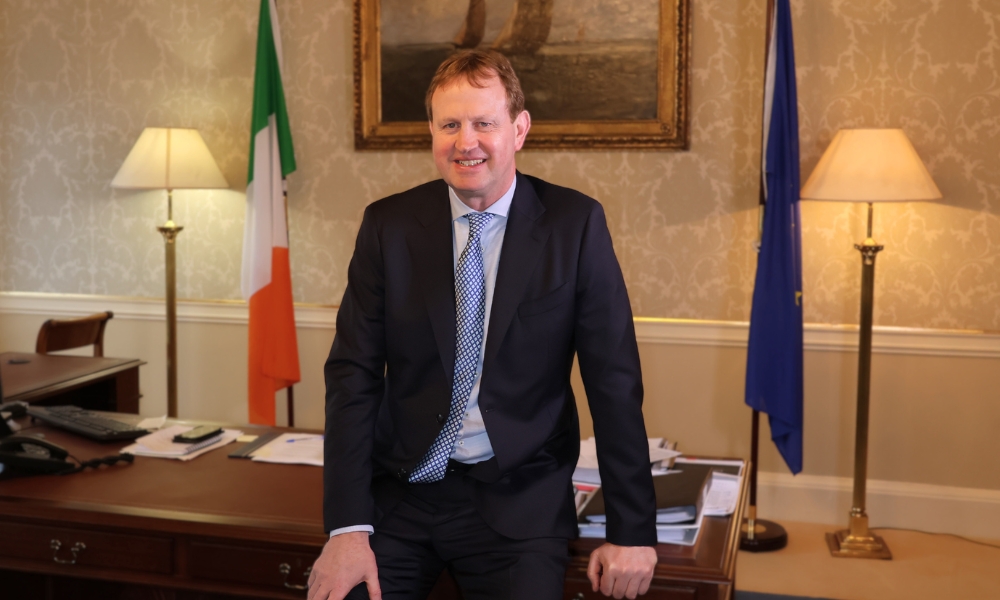First-of-its-kind research into ‘in camera’ rule published

Jim O'Callaghan
A first-of-its-kind research study into the operation of the in camera rule in family law proceedings has been published by the Department of Justice.
Researchers from University College Cork and Trinity College Dublin have made 21 recommendations for reform, while affirming that family law proceedings should continue to be held in private and the privacy rights of children and parties to proceedings should be maintained.
They said the in camera rule should be renamed to ensure that it is understood by all family court users, that it should be clearly and consistently defined, and that effort should be made to ensure that its operation does not impede parties accessing support outside court.
The study collected data from 13 judges, 18 focus groups with 84 professional participants and services, as well as 300 parents and family members who completed the national online survey about their experiences of the in camera rule in the family law courts.
The findings were first presented last month at the inaugural meeting of the new Family Justice Development Forum, but have been published today for the first time.
Keith Walsh, a leading family law solicitor in Dublin, told Irish Legal News that he welcomed the publication of the report and its recommendations.
“It is very important that the privacy of children and families is respected,” he said, noting that the proposed state funding of a private family law reporting service would “ensure oversight of the family courts”.
Dr Aisling Parkes, the senior lecturer in law at UCC who led the study, said: “What emerged as one of the most significant findings is the striking absence of public knowledge and understanding of what goes on behind the closed doors of the family law courts due to the operation of the in camera rule.
“This is a deeply concerning finding given that a democratic society depends on transparency to ensure public confidence in the family justice system, and in particular, in the administration of family justice.
“A review of other legal systems has demonstrated that it is possible to achieve an appropriate balance between promoting transparency and protecting the privacy of family members involved in these cases.
“In the context of ambitious family law reform that is currently underway in Ireland, now presents an opportune time for change.”
Dr Simone McCaughren of the School of Social Work and Social Policy at TCD, one of the co-authors of the study, added: “The family law system has been plagued by secrecy, misinformation and a lack of clarity as a result of the in camera rule.
“The importance of our research study is that, for the first time in Ireland, the public will get a real insight into some of the hidden aspects of the family law system.”
Justice minister Jim O’Callaghan said: “This is an important piece of research which details the perspectives of many stakeholders regarding the current understanding and operation of the in camera rule in family law proceedings. Importantly, it includes the views of those who have been parties in such proceedings.
“I would like to thank the authors of the report, Dr Aisling Parkes, Dr Simone McCaughren and Dr Kenneth Burns, for their expertise in bringing this report to fruition.
“Most importantly, I would like to express my gratitude to all the research participants who contributed their experiences and insights, which added to the richness of the report’s findings.”
He added: “The starting point for any consideration of the in camera rule, whether in family law proceedings or otherwise, must be Article 34.1 of the Constitution that provides justice shall be administered in public, save such special and limited cases as may be prescribed by law.
“The in camera rule is an important rule that guides the operation of the family courts by restricting disclosure of the identity of the litigants. It protects privacy but, as the research notes, it limits transparency.”
The report contains a number of recommendations to promote greater transparency, including that there should be a presumptive right for all journalists and other authorised members of the media who are members of the Irish Press Council and subscribe to its ethics and standards and/or those of Coimisiún na Meán to attend family law proceedings.
It also recommends that a private family law reporting system be established.
Mr O’Callaghan said: “Continued reform of the family justice system, for the benefit of families and children, is one of my priorities as minister. Creating greater public understanding of family justice, while continuing to protect the privacy of those involved, is an important aspect of this.
“The report I am publishing today makes a significant contribution to that work.
“I have asked my officials to now consider this report and revert by the end of this year with policy proposals for my consideration that will reform the in camera rule.
“My Department is also finalising the tender for the establishment of the private family law reporting project, which will be issued in the coming weeks.”








